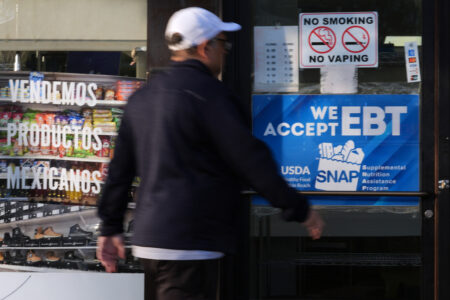Wheeling-Ohio County Needle Exchange Program Sees Sharp Increase
WHEELING — More than 8,300 new syringes have been distributed in nearly two years of operation for the Wheeling-Ohio County Board of Health Department’s needle exchange program.
Nearly 6,000 of the clean needles have been given out in the past nine months — more than double the number from the exchange’s initial year, during which the health department distributed 2,350 free syringes in the first year of its program.
“The needle exchange has been going well. The staff has been working well with it,” said Howard Gamble, health department administrator.
The health department conducts the off-site program at a Northwood Health System facility at 2121 Eoff St., Wheeling, from noon to 3 p.m. every Friday. Operating a one-for-one free exchange, health personnel accept used needles and can give out an equal number of sterile syringes.
Gamble said that from September 2015 to last week, “just about 8,313 needles were dispensed. … That’s a pretty good volume to be dispensing to the public.”
The department keeps a running tally on the program’s numbers. In the beginning, numbers for needles dispensed and participation were very low, but have increased over time.
However, Ohio County’s initiative “is not the largest in the state as far as volume,” he said.
The needle exchange “is an effort that we can do to prevent public health diseases such as hepatitis and HIV,” Gamble said. “Any single case for treatment can outweigh the financial resources we have put in (the program) in the past two years. The cost doesn’t compare to treatment that one individual would receive for hepatitis C, hepatitis B or HIV.”
The site and hours of operation are adequate for the local program, Gamble believes.
“Right now, we seem to be very comfortable with one day. It’s working well. It works well with our partner Northwood,” he said.
Clients have been surveyed informally and are satisfied with the site and the frequency of the exchange, he said.
“We’re very comfortable with that one location. … At some point to look for an additional location, it would be out of need,” Gamble said.
Since the program’s inception, only a small number of participants have requested testing or counseling.
“There is an individual from the state health department who can do a rapid test on site for HIV. We can refer for hepatitis testing,” Gamble said. “Those numbers are very small. Under a dozen in two years have asked or agreed to those tests.”
Northwood offers substance abuse counseling, “but those numbers are even smaller,” according to Gamble.
“Less than five have asked to see a counselor, but it’s five.
“If you’re successful with one, you’re successful,” he said.
The health department also collects used needles and dispenses sterile syringes when it conducts homeless outreach in Wheeling.
“Not that many are dispensed.
“The numbers are extremely small. We take in more needles than we dispense,” he said.
Health personnel and volunteers “do more treatment and seeing clients than needle exchange” during the homeless outreach visits conducted in the community every Tuesday night, he said.
Gamble said, “We definitely take in more needles than we dispense. That’s by design. People dump them off here and are not participating in the clinic whatsoever. We collect more needles than we give out.”
Needles are accepted from individuals who have diabetic syringes or find other needles and from law enforcement officers and fire personnel who collect them in the course of duty.
Used needles are destroyed with the health department’s medical waste.
Regarding programs statewide, Gamble said, “There is a growth in public health needle exchanges. When we started in 2015, two counties were on board, Cabell and Ohio, followed directly by Kanawha.”
Now, five more West Virginia counties — Jefferson, Preston, Berkeley, Jackson and Harrison — also have active exchanges. At least a dozen other counties are in the planning stages for opening programs, he said.
“The number of public health exchanges has grown drastically,” Gamble said.
“In some counties, it’s very much needed, with increases in disease or increases in drug use, which sometimes correlate with each other. … We’ll probably see additional county health departments stepping up for needle exchange.”





